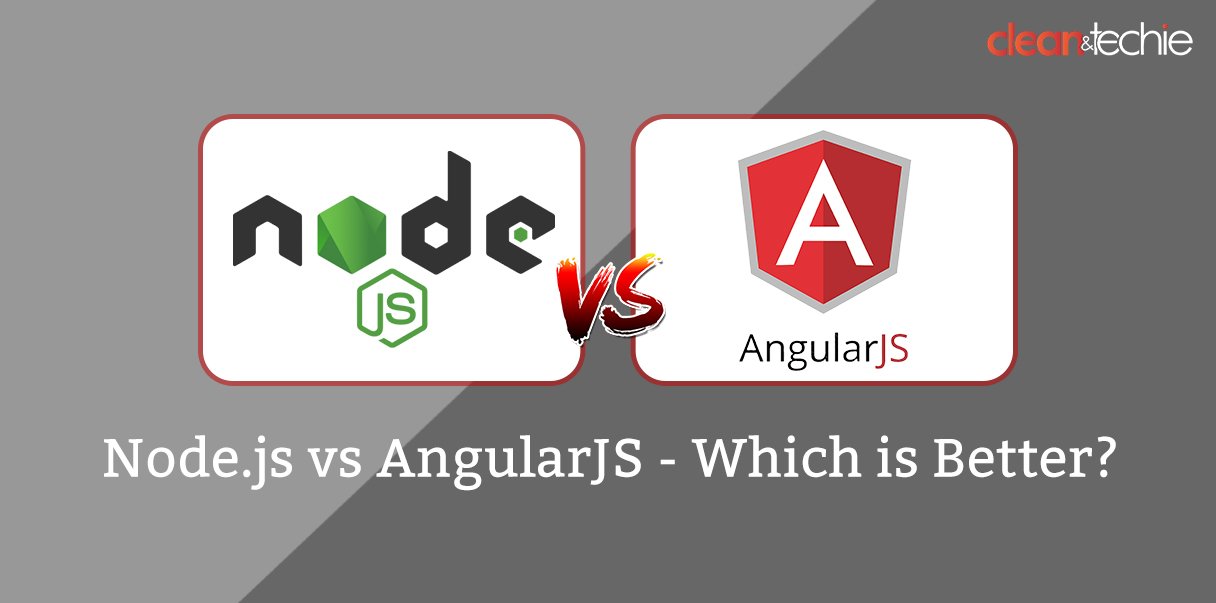Node.js, vs AngularJS, is the question which needs to be answered correctly about why you plan to develop a web application.
Both technologies have their strengths, but choosing the right one can be an uphill task.
The key is understanding your project’s specific needs when we talk about Node.js vs AngularJS. Are you building a dynamic, interactive user interface or a scalable, real-time application? AngularJS excels at crafting complex front-ends, while Node.js shines at handling server-side logic and building high-performance applications. While both Node.js and AngularJS are powerful tools, their strengths lie in different areas.
Understanding these differences is important for successful web development.
Let’s look at the top 5 reasons why you should use Node.js
Node.js: The Server-Side Powerhouse
Wide Use of JavaScript:
Node.js uses JavaScript’s full potential, allowing developers to write both server-side and client-side logic in a single language.
This unified approach streamlines development, enhances code reusability, and fosters a deeper understanding of the entire application stack. From handling database interactions to crafting dynamic user interfaces, JavaScript’s versatility shines through Node.js.
Real-Time Applications:
Its non-blocking, event-driven architecture effortlessly handles multiple concurrent connections. Node.js is best at building chat applications, online gaming collaborative tools, and other dynamic platforms. These applications require real-time updates, and Node.Js is ideal for these developments.
Full-Stack Development:
Node.js lets you use JavaScript for both the front and back parts of a website or app. This means you can use the same language for everything, making it easier and faster to build. For example, you can design how the website looks with JavaScript, and then use Node.js to handle the behind-the-scenes work like saving data.
High Performance:
Node.JS is developed on Chrome’s V8 JavaScript engine. It is well-known for fast processing through its asynchronous, event-driven architecture. Unlike traditional blocking models, Node.js doesn’t halt execution while waiting for I/O operations. Instead, it continues processing other tasks, significantly improving responsiveness and throughput. This makes it exceptionally well-suited for applications demanding real-time interactions, such as chat servers, online gaming platforms, and collaborative tools.
Open-Source:
Node.js thrives as an open-source platform, fostering a vibrant community of developers who contribute to its growth. Its free accessibility and permission to modify the codebase encourage innovation, leading to a rich ecosystem of tools, libraries, and frameworks. This collaborative environment accelerates development, problem-solving, and the overall maturity of the Node.js ecosystem.
AngularJS: The Front-End Champion
Two-way Data Binding:
The two-way data binding architecture of AngularJS ensures real-time effects take place. The data model updates are instantly reflected in the user interface, and vice versa. This automatic synchronization eliminates the need for manual updates, saving developers time and reducing the likelihood of inconsistencies between the data and the displayed content.
MVC Architecture:
AngularJS uses MVC (Model-View-Controller) to organize your app. The ‘Model’ holds the data, the ‘View’ displays it, and the ‘Controller’ acts as the middleman, updating the View based on changes in the Model. This keeps your code tidy and easier to manage.
AngularJS adheres to MVC, separating concerns and making code more organized, maintainable, and testable.
Dependency Injection:
Dependency Injection (DI) in AngularJS is a way to provide components with the services or data they need without them having to create or find those dependencies themselves. AngularJS handles this automatically, making your code more reusable and testable. Think of it as giving a car an engine without the car having to build its own engine. This improves code organization and efficiency.
Directives:
AngularJS directives are custom HTML attributes. These elements extend the HTML vocabulary. AngularJS Directives are a powerful way to create reusable and encapsulated UI components. By defining directives, developers can encapsulate behavior, styling, and DOM manipulation logic into reusable units. Directives are used to create custom elements, modify existing elements, or control the flow of the application flow.
They are helpful in building complex and dynamic user interfaces while keeping the codebase organized and scalable.
Large and Active Community:
AngularJS has a substantial and engaged community. This community provides an abundance of resources, libraries, and support. This rich ecosystem accelerates development by providing pre-built solutions, code examples, and troubleshooting assistance. Developers can quickly find answers to challenges, learn best practices, and collaborate with others, ultimately improving efficiency and project success. Further, AngularJS is also used in mobile app development tools.
Takeaway: Node.js vs AngularJS
Ultimately, the “better” choice between Node.js and AngularJS depends on the specific needs of your project. Each technology offers distinct advantages. Together, they contribute unique strengths. If you prioritize real-time capabilities, scalability, and a full-stack JavaScript experience, Node.js might be the ideal fit. On the other hand, if building complex, interactive user interfaces is your primary focus, AngularJS’s robust framework could be the way to go.
The best approach is often to combine the two for a powerful full-stack solution. By understanding the core competencies of each, you can make informed decisions to build high-performing web applications.




